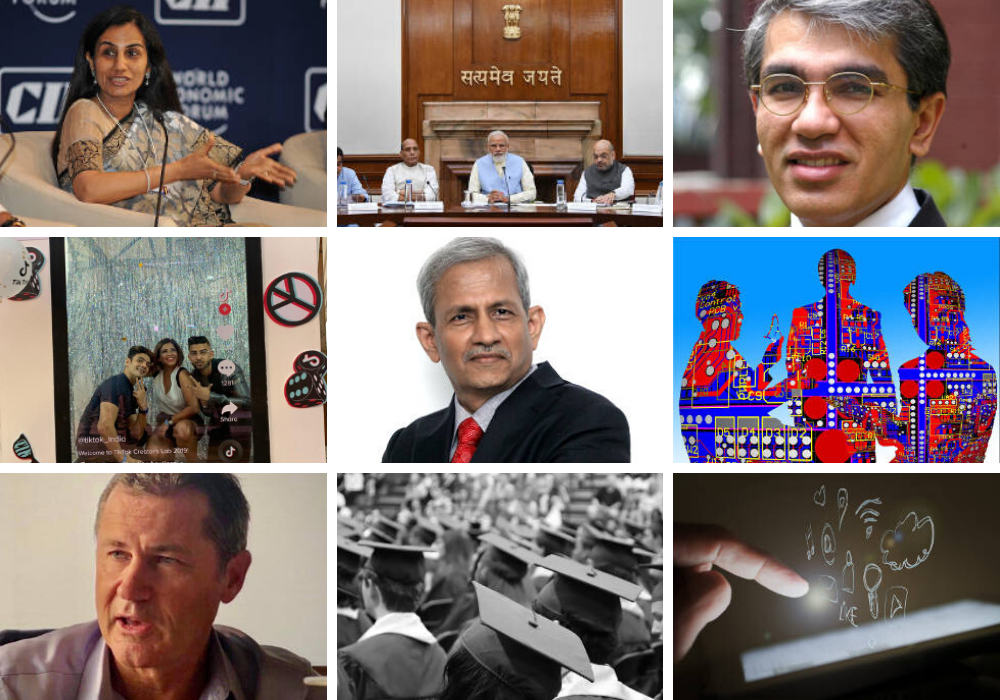Dear friend,
In the last week of December, we put our heads together to compile a list of our best work during the year. The outcome is a list of 20 articles, videos, podcasts and Masterclasses that represent what Founding Fuel stands for. Judging by the responses these evoked, we believe it amplifies what is most meaningful to the audiences we serve.
As we re-examined our body of work over the year, some themes stood out:
1. The story behind the story
There’s much to learn from corporate upheavals. When things come to a head, while there are cautionary tales, it offers an opportunity as well to reflect on the larger issues and dilemmas at play.
The inside story of Chanda Kochhar’s fall from grace stands out. The news about ICICI Bank’s board terminating her services broke out on January 30. Two days later, we published a detailed account of what transpired, the events that led to it, and what lies at the heart of the matter.
The existential challenges that led to McKinsey’s conflicts of interest offered a similar opportunity to understand what the consulting business—and not just one firm—is grappling with. And why leaders must re-examine the faulty measures of success.
The interview with former McKinsey chief Rajat Gupta where he talks about lessons learnt from his journey to the top and his subsequent fall from grace offered more insights on this mission drift.
2. The pulse of India
If pinned down and asked to place a finger on phenomena that reflects India in 2019, two stand out: The rise of TikTok influencers and BJP’s sweeping victory in the 2019 general elections.
The first (which is part of a four-part series) represents how large swathes of young Indians are adopting technology and are using it to fulfil their aspirations. The second is a story about what Indians’ dreams about, aspire for, and how the BJP crafted a narrative that appeals to most of them.
Both offer business leaders deep insights on millennials and consumer behaviour, and the importance of storytelling.
3. Cause and effect: The two faces of technology
Truth lies in the nuances.
Now, pause for a moment and ponder over these assertions.
-
Technology is killing jobs and pushing people into poverty.
-
Technology can lift India out of poverty.
This may sound like an oxymoron. But between the podcasts with Sundeep Waslekar and Manish Sabharwal, they explain why both assertions are true. It depends on the context.
Waslekar attributes the rise of hyper nationalism across the world to the inequities created by technology. “Economic progress in the last 500 years has been driven by science and technology. Technology made life easier and created new kinds of jobs…. But the growth that’s taking place now is reducing jobs.”
For India, technology is important, says Sabharwal, but not of the cutting edge artificial intelligence/machine learning kind. Institutions, urbanisation, human capital, financialisation are all technologies in the early stages of a country of our scale and size.
4. Technology’s time of reckoning is near
An occasional look in the rear view mirror is edifying—it shows what’s approaching. In much the same way, as we looked back at our body of work, some stories coalesced into clear patterns:
a) AI ’s unintended consequences are significant, because automated decisions affect billions. And the push for technology to wrap its head around ethics is gaining serious traction.
b) Tech-driven platform businesses are here to stay and they are resetting markets. They blur market boundaries, ignore regulation, exploit merchants, and grow at breath-taking speed. Zomato Gold’s battles with member restaurants illustrates this well. But all is not lost for incumbents: they do have strengths, but they will need to rethink their game.
c) Entrepreneurs need to understand more than just technology—they need a liberal arts education to understand humans (“figuring out how to talk to strangers, understand them and then convince them is harder than rocket science”) because the value of technology is in solving meaningful human problems.
d) And businesses need to re-examine their purpose. This calls for a new toolkit based on systems thinking, ethical reasoning and deep listening. The story of how Singapore learned and improved so fast, offers plenty of clues on how this approach can help businesses and governments solve the problems that need to be solved.
5. How do you grapple with this complex, ever-changing world?
Some life lessons emerged from those who’ve been in the driver’s seat and have been at the top in their field: From Olympian Michael Phelps (one lesson his coach Bob Bowman drilled into him: prepare for the worst possible circumstance that you can imagine); from five-time ICC Umpire of the Year Simon Taufel (step back and think about your game, especially the mistakes, and be coachable), and from bestselling author Nir Eyal (on how to get traction and get your jobs done).
Those stepping into leadership roles must break out of stereotypes and create their own learning programme to acquire a wider repertoire of styles crucial to leadership.
And leaders need to become chief experimenters as they try to balance the push and pull of innovation and predictable, process-driven, efficient operations.
Before I sign out, may I point you to a curated List of Lists that traces its origins to multiple sources. I wish our team thought those stories up.
I sincerely hope you enjoy reading all of this as much as all of us enjoyed putting this together.
To the New Year!
Sveta Basraon
The best of 2019
Funding Fuel’s 20 best stories, videos, podcasts and masterclasses
Why the worst may not be over for Chanda Kochhar, by Indrajit Gupta

[By World Economic Forum, under Creative Commons]
The inside story of how Chanda Kochhar let hubris and greed implode her trail-blazing career at ICICI Bank. (Read Time: 14 mins)
The McKinsey case and consulting’s ethical dilemma, by Arun Maira

[Bending the moral compass : statue, Lower Market Street, downtown San Francisco (2013). Photo by torbakhopper, under Creative Commons]
The case is symptomatic of a wider issue: in the race to generate wealth for their partners, are management consulting firms in danger of losing sight of their original purpose—to be trusted advisors to CEOs? (Read Time: 8 mins)
Behind Rajat Gupta’s dogged attempt to save his reputation, by Indrajit Gupta
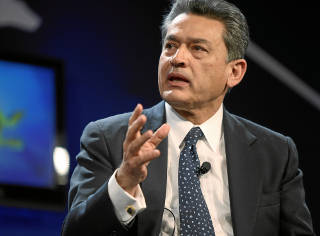
[By World Economic Forum (CC BY-NC-SA 2.0)]
The former McKinsey chief’s tell-all book is an attempt to offer his side of a story that sent shockwaves around the world. But the book is unlikely to sway his detractors. In an interview, Gupta shares some of the lessons he learnt from the crisis—and a lot more. (Read Time: 5 mins)
Technology, nostalgia and the rise of radical nationalism, by Indrajit Gupta
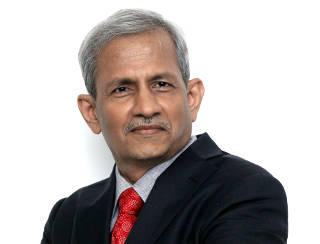
In this podcast, Sundeep Waslekar, president of think tank Strategic Foresight, talks about a growing global phenomenon: the resurgence of the right. What it means and how it might shape our world. (Play Time: 22 mins)
India doesn't have a jobs crisis, it has a wages crisis, by N S Ramnath
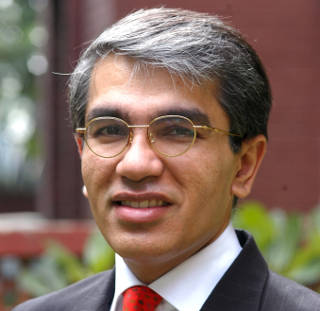
Is technology killing jobs? And can India use technology to create jobs? Teamlease’s Manish Sabharwal says, our problem is providing a living wage, not jobs. We need to worry about improving productivity through the application of land, labour, and capital—and not so much the impact of automation. (Play Time: 34 mins)
Please look now: We are changing, by Piyul Mukherjee

[Photo courtesy Shivani Kapila, TikTok star, Surat]
To make sense of the uncertainties and disruptions around us, we must try and understand the underlying human attitudes and behaviour. There’s much for brands and marketers to learn from the TikTok phenomenon. (Read Time: 8 mins)
The BJP’s real Brahmastra, by Anmol Shrivastava

[Prime Minister Narendra Modi at the first cabinet meeting at the Prime Minister’s Office, in South Block, New Delhi, on May 31, 2019. Photograph from pib.nic.in]
With its thumping win at the hustings last month, Prime Minister Narendra Modi and the BJP have proven themselves as master storytellers. The way it executed the integrated communication strategy for the crucial 2019 elections holds important lessons for leaders across India Inc. (Read Time: 11 mins)
The world as seen by Michael Phelps, by Charles Assisi
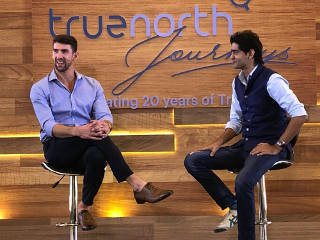
Listening to the greatest Olympian ever offers life lessons that can be extrapolated into multiple domains (Read Time: 8 mins)
The man who admits he got it wrong on occasion—and still ruled world cricket, by Indrajit Gupta
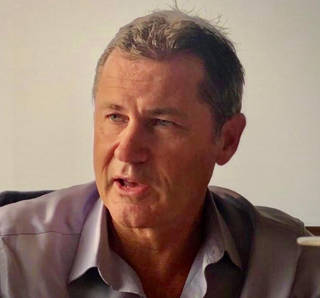
In this podcast, listen to five-time ICC Umpire of the Year Simon Taufel on the game of cricket, and the learnings there for leaders who are looking to build high performance organisations. (Play Time: 70 mins)
Being indistractable: Masterclass with Nir Eyal

Why do we get distracted and what can we do about it? A learning session on how to get your jobs done and lead a life that’s true to your values. (Play Time: 61 mins)
Do I need a “Killer Instinct”? by Kalpana Tatavarti

People lose out by conforming to gender stereotypes. You need to develop a wider repertoire of styles crucial to leadership. (Read Time: 5 mins)
What leaders need to do to capture value from innovation in the digital era, by Rishikesha T Krishnan

Innovation is easier in the digital era. Yet, capturing value from innovation is becoming more challenging. This calls for the leader’s role to change to that of chief experimenter. (Read Time: 9 mins)
The unintended consequences of technology and why it matters, by N S Ramnath

In this podcast, Wharton professor Kartik Hosanagar talks about how automated decisions affect billions and what consumers can do to take back control, can a VC firm be a Pixar of VC firms, and the organisational changes Google made to become AI-first. (Play Time: 36 mins)
Not AI alone but AI + ethics, by N Dayasindhu

AI systems may be making important decisions that will fundamentally affect the lives of Indians. For AI to be truly transformative though, its ethical biases need to be rooted out. (Read Time: 8 mins)
‘The value of technology is in solving meaningful human problems’, by Charles Assisi

In this podcast Scott Hartley, bestselling author of ‘The Fuzzy and the Techie’, talks about why tech knowledge is necessary, but not sufficient for entrepreneurs. They also need a broader curiosity about the world around them. (Play Time: 40 mins)
What they don't teach you at the IITs, by Tanuj Bhojwani

Entrepreneurs need to be able to understand humans, individually and as a collective. For them, a liberal arts education is necessary. Because the scientific method teaches you inquiry. But the humanities teach you to apply that inquiry to yourself. (Read Time: 6 mins)
Making sense of the New Capitalists, by Haresh Chawla

Your smartphone is the gateway for platform businesses to drive their hooks deep into your psyche and pockets, edge out traditional businesses, and reset markets. In doing so, they are becoming monopolies, the likes of which we’ve never seen before. What is fair play in this new world? (Read Time: 17 mins)
Zomato Gold: A crisis that was waiting to happen, by Harsh Vardhan

The Zomato Gold membership programme was a runaway success, but the inherent conflict at the heart of the scheme has sparked off a huge battle between the aggregator and restaurants. For Zomato, shifting the focus of diners from discounts to loyalty may be the best way forward. (Read Time: 11 mins)
Understanding platform power—disruption or destruction?

Platforms, data, analytics are not going to go away. The good news for incumbents: they do have strengths they can play to. The bad news: They will need a different mindset and rethink customer experience. (Play Time: 94 mins)
Economies of scope: Singapore’s alternative approach to progress, by Arun Maira

In the relatively short time since it became independent in 1965, Singapore has made giant strides. The country illustrates well the power of local systems solutions, purpose-driven networks, and inducing all parts of the government and all stakeholders to work together. (Read Time: 8 mins)
Year End Special
11 things to explore, learn and reflect on in 2020
Articles, podcasts, books and courses for leaders and learners (By R Sriram)
Ten best business books of 2019
What Uber, Netflix and Walt Disney Company show us about thriving in a tech world; leadership skills for sustainable success; and how human behaviour shapes decisions. (By D Shivakumar)
The World in 2019
As the decade and the year come to an end, here are some curated lists that show us how we got here, what to expect in the next year and decade, and how to have some fun along the way.
32 moments that made the decade
The security stories that shaped 2019, part one
Soft-power special: Global leaders
25 Ideas that will shape the 2020s
WIRED's 7 big science stories that shaped 2019
The biggest technology failures of 2019
The biggest billionaire winners and losers of 2019
The 30 best international TV shows of the decade
The best holiday destinations for 2020
